Prof. GAO Huajian of Tsinghua University delivers “Mechano-X: Interdisciplinary Research and Innovation at the Frontiers of Mechanics”
PAIR Distinguished Lecture Series
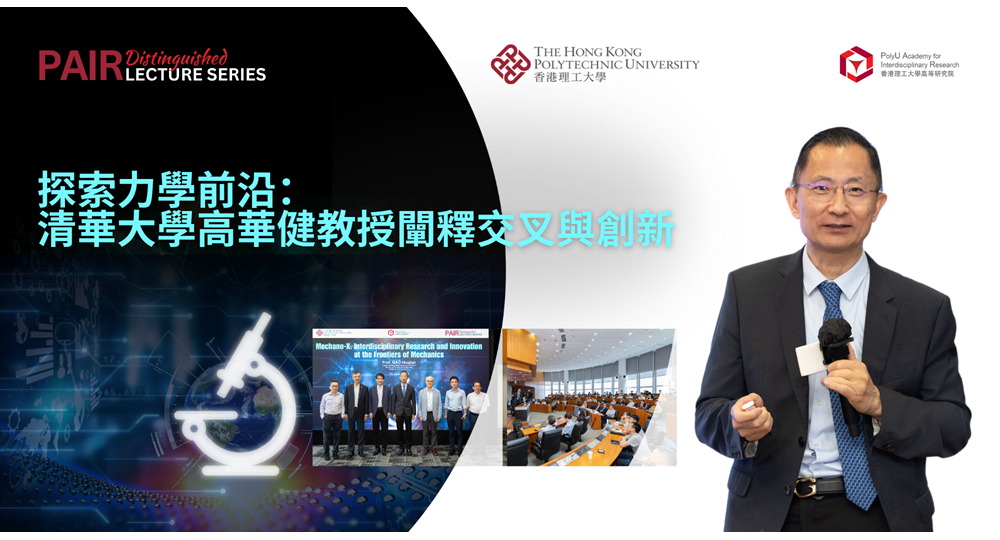
-
Date
13 Jun 2025
-
Organiser
PolyU Academy for Interdisciplinary Research
-
Time
10:30 - 12:00
-
Venue
Senate Room, M1603, 16/F Li Ka Shing Tower, PolyU (Limited seats are available on a first-come, first-served basis)
Speaker
Prof. GAO Huajian
Enquiry
PolyU Academy for Interdisciplinary Research info.pair@polyu.edu.hk
Summary
Prof. GAO Huajian, Xinghua Distinguished University Professor and Director of the Mechano-X Institute of Tsinghua University, China, delivered the 40th PAIR Distinguished Lecture titled “Mechano-X: Interdisciplinary Research and Innovation at the Frontiers of Mechanics” on 13 June 2025 on the PolyU campus. The lecture drew over 130 attendees in person and captivated an online audience of more than 14,000 from different countries and regions who watched the live broadcast on social media platforms.
The lecture commenced with a warm welcome by Prof. CHEN Qingyan, Director of PAIR, followed by an introduction of the speaker by Prof. WANG Zuankai, Associate Vice President (Research and Innovation) of PolyU.
Prof. Gao began his presentation with a brief outline of important role that mechanics plays in the development of structural and functional materials, enlightening the audience on the recent advances in nanostructured materials, biomedical materials, mechanical metamaterials, soft actuators, flexible electronics, tunable mechanochromics, regenerative mechanomedicine and many more.
He further illustrated how fundamental principles of mechanics enable the proactive modulation and programming of properties in both engineering and biological systems. Through case studies, Prof. Gao highlighted the breakthroughs in mechano-energy, mechano-interfaces, and mechano-materials, demonstrating their transformative potential.
In closing, Prof. Gao emphasised that mechanics remains a discipline with boundless possibilities in the era of interdisciplinary research and innovation. He underscored the promise of mechanics-based modelling and design, which could expand into areas such as nanostructured, low-dimensional, biological, biomimetic, soft, gradient, and metamaterials. Such approaches, he noted, could deeply intersect with fields including advanced manufacturing, healthcare technology, sustainable energy, and biomedical tissue and organ engineering, opening new opportunities for the development of related solutions.
Following the presentation was a lively question-and-answer session moderated by Prof. CHENG Li, Management Committee Member of Research Institute for Artificial Intelligence of Things (RIAIoT), Associate Dean (Research) of Faculty of Engineering and Chair Professor of Mechanical Engineering. The audience engaged in a productive discussion with Prof. Gao.
Click here to review online.
Photo Gallery
Prof. GAO Huajian delivers “Mechano-X: Interdisciplinary Research and Innovation at the Frontiers of Mechanics”
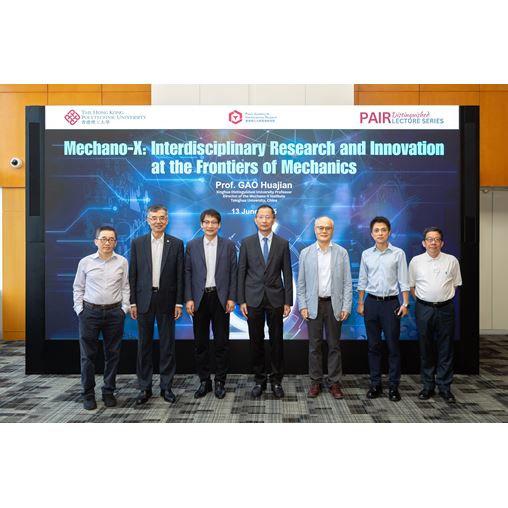
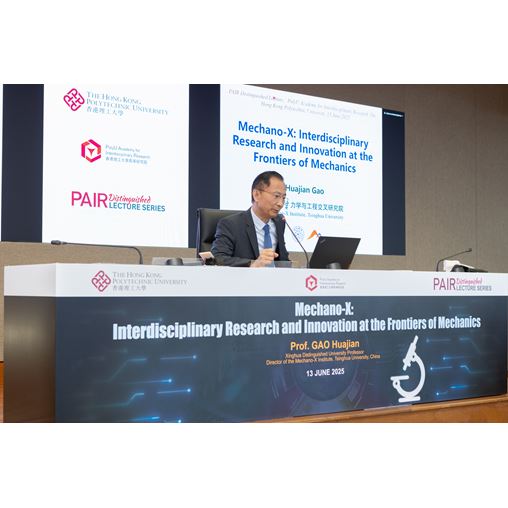
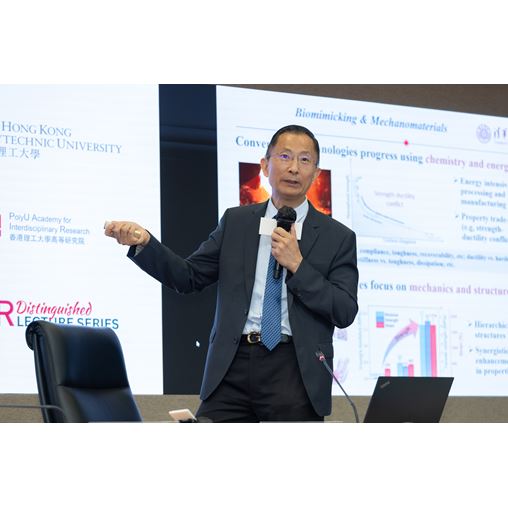
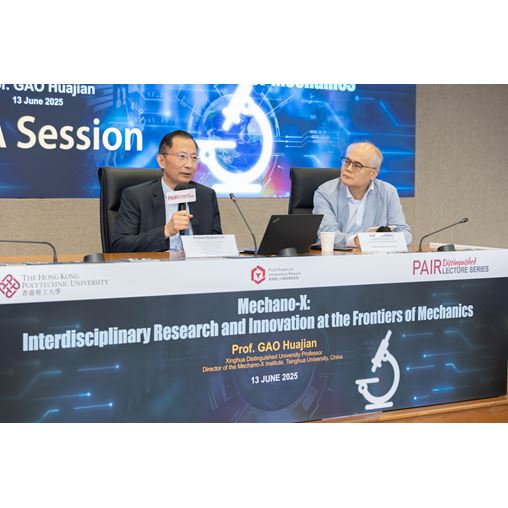
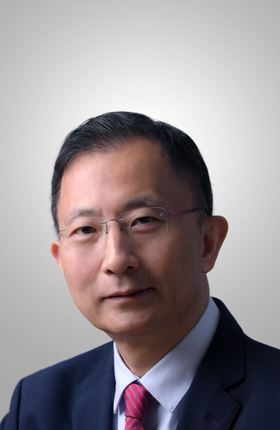
Prof. GAO Huajian
Xinghua Distinguished University Professor
Director of the Mechano-X Institute
Tsinghua University, China
-
Walter H. Annenberg Professor Emeritus at Brown University, USA
-
Member of the National Academy of Science of USA
-
Member of the National Academy of Engineering of USA
-
Member of American Academy of Arts and Sciences
-
Foreign Member of the Chinese Academy of Sciences
-
Fellow of the Royal Society
-
Fellow of the German National Academy of Sciences Leopoldina
-
Foreign Member of Academia Europaea
GAO Huajian, PhD (Harvard, 1988), is a Xinghua Distinguished University Professor at Tsinghua University and Walter H. Annenberg Professor Emeritus at Brown University. His research focuses on the understanding of basic principles that control mechanical properties and behaviours of materials in both engineering and biological systems. His honours include the Rodney Hill Medal, Timoshenko Medal, and ASME Medal—the three highest international awards in his field—and elections to the Chinese Academy of Sciences, U.S. National Academy of Sciences, U.S. National Academy of Engineering, American Academy of Arts and Sciences, U.K. Royal Society, German National Academy of Sciences Leopoldina, and Academia Europaea.


